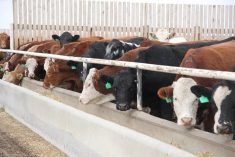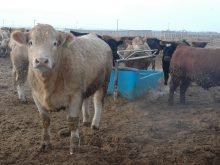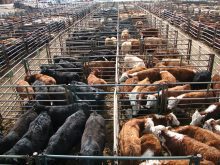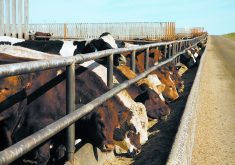This cattle market information is selected from the weekly report from Canfax, a division of the Canadian Cattle Association. More market information, analysis and statistics are available by becoming a Canfax subscriber by calling 403-275-5110 or at www.canfax.ca.
Packers in good spot
Western Canadian packers have the upper hand on the market, and sellers are faced with limited market leverage. Last week, dressed sales were reported from $362-$370 per hundredweight delivered.
Read Also

Russian wheat exports start to pick up the pace
Russia has had a slow start for its 2025-26 wheat export program, but the pace is starting to pick up and that is a bearish factor for prices.
Over the previous two weeks, Alberta fed prices traded at a $23 per cwt. discount against the U.S. market. Last week, two U.S. packers were active on the western Canadian fed market. U.S. packers have been reluctant to buy cattle on a negotiated cash basis but instead want to procure fed cattle on a formula price.
Western Canadian steer carcass weights continue to hover close to 1,000 pounds and remain near record large. Western Canadian fed slaughter for the week ending Feb. 10 totalled slightly more than 40,500 head, 11 percent lower than last year.
In Ontario, dressed sales were reported at $400 per cwt. delivered, $5-$11 per cwt. higher than the previous week. Ontario fed prices are $9 per cwt. (live), shy of record highs set in June 2023.
In the United States, dressed sales in Iowa and Nebraska ranged from US$285-$289 per cwt., steady to $2 lower than the previous week. Live sales in Texas and Kansas ranged from $179-$180 per cwt.
Processing margins remain negative, and packers have started to scale back hours. Beef production last week was estimated at 507 million lb. For the middle of February, beef production is below last year and below the five-year average.
Cow prices surge
Last week both Alberta D2 and D3 cows had the biggest price surge since the start of the year. Compared to the previous week, D2s rose by $11.91 per cwt. to $144 per cwt., and D3s rose by $8.78 per cwt. to $127.56.
The upward trend closely mirrors last year’s rally, and seasonally, a continued uptick is expected.
Alberta butcher bulls averaged $155.59 per cwt. last week, a modest increase of $2.45 per cwt. from the previous week, with expectations of a more robust increase soon.
Rail grade cows were reported from $270-$280 per cwt. Slaughter volumes for cows for the week ending Feb. 10 reached 10,722 head.
An interesting contrast unfolds when comparing the five-year average between the two regions. Western Canada saw a 10 percent decrease in cow slaughter volumes and Eastern Canada had the opposite, with a 9.5 percent increase.
Lots at auction
Auction market volumes for the second week of February were the highest in the past decade at 40,986 head. This is a significant 64 percent increase from the previous week and is the largest weekly volume so far this year.
The momentum on feeder prices continued last week. They have been supported by lower feed prices. Lethbridge barley and Ontario corn have dropped nine and five percent, respectively, since the start of the year and are down 12 percent and 22 percent compared to the five-year average.
Last week, Alberta 550 pound steers were up $8.02 per cwt. compared to the previous week, 850 lb. steers were up $9.27 and 550 lb. heifers were up $13.55 per cwt. This is the highest week-over-week change this year.
Over the past five years, lightweight heifer prices have remained steady until the latter half of the year. However, last year saw an early rally that continued into the fourth quarter. With the current price dynamics, a similar rally could occur.
Heavyweight 850 lb. heifers were up $4.56 per cwt. This is out of character for heavyweight heifers. Based on the historical five-year average, they trade sideways until the latter half of the year, but last year the rally began at the start of the year, eventually softening in the fourth quarter. This pattern could be repeated this year.
The spread between lightweight 550 lb. steers and heifers reached a historical high of $59.55 per cwt. for the month of January, driven by the strong rally on lightweight 550 lb. steers.
The heavyweight 850 lb. steer and heifer spread reached $26.78 per cwt. for January.
For the week ending Feb. 3, Canadian live cattle exports to the U.S. totalled 14,882 head. Both the West and East experienced increases of 17.8 percent and 11.4 percent, respectively, compared to the previous week.
U.S. cutouts steady
In U.S. beef trade, Choice cutouts averaged US$295.30, steady with last week, and Select averaged $287.99 per cwt., up slightly.














